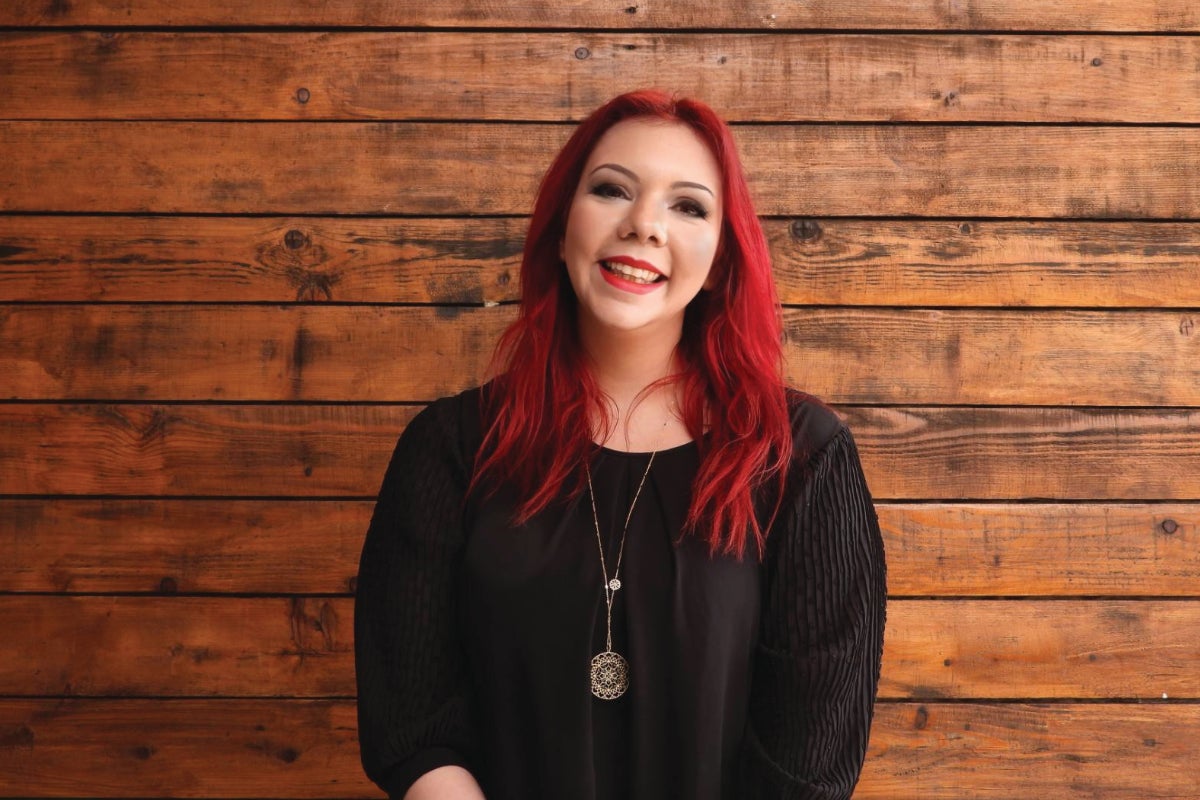In the words of Beba Zhagar: “Gender inequality affects everyone on different occasions, so the change must begin in our own individual mindset before it becomes collective consciousness”
Date:

Beba Zhagar, a 27-year-old lawyer, court translator, and researcher from Skopje, North Macedonia has been actively working to advance human rights, gender equality, non-discrimination, freedom of expression and combat hate speech in the country. Her passion to make a positive difference in people’s lives has led her to policy and human rights research at the European Policy Institute (EPI), where she works to create impact for broader groups of people in society by collecting and analysing data on current social issues, engaging with various stakeholders to initiate change, and providing recommendations for further improvement. Beba joined the UN Women “Imagine” campaign to encourage and inspire young people to become advocates for gender equality and human rights.
"My journey to becoming a lawyer started with a childhood desire to serve those in need, especially disadvantaged groups. While I considered several different professional paths, the desire to become a lawyer struck a deep chord with me. As a lawyer, I found great satisfaction in supporting individuals in legal disputes, but I wished to influence greater change, to lift entire communities confronting structural issues.
Transitioning to the field of research allowed me to delve further into social challenges, to analyse data, and advocate for meaningful solutions. Gender equality became a strong focus of my research dealing with human rights. As a woman navigating the challenges of the twenty-first century, I recognized first-hand the need of breaking down stereotypes and promoting true gender equality.
One significant accomplishment of my advocacy work at EPI was the collaborative effort with various partners from the state, civil society, and other sectors to secure paid maternity leave for women in agriculture. Women working in rural areas in North Macedonia often face barriers to accessing social security benefits because they lack formal employment status, and hence were not entitled to maternity leave. Through advocacy and dialogue, in 2023 we turned policy into action, making a difference in the lives of countless women when the Government of North Macedonia adopted a programme to ensure social security for women working in agriculture.
However, this is only a small win, and our efforts are far from over. The fight for gender equality requires not only policy changes, but a significant shift in society’s views. Raising awareness, eliminating hate speech, and empowering the next generation of young people are essential steps in the journey to create genuine social cohesion.
Gender equality is a multifaceted topic that addresses a wide range of issues, such as access to education and training, equal pay for equal job positions and effort, representation in state institutions and decision-making positions and so on. The latter topic was addressed in the video which I prepared together with my team “Data Gals” during the Gender Data Bootcamp, organized by UN Women last year. Each of these issues must be addressed to establish genuine and cohesive gender equality, not just on paper, but also in practice. The most difficult challenge at the present is to change people’s perceptions that women are the “weaker” gender, and that gender equality is an unfamiliar, foreign concept.
Gender inequality affects everyone on different occasions, so the change must begin in our own individual mindset before it becomes collective consciousness. One of the most pressing issues we must address is the harmful or destructive discourse by individuals, the media, and public figures. Anti-gender narratives have the potential to encourage hate speech, and subsequently, hate crime which must be prevented before it occurs. Genuine social cohesion requires a collaborative effort from all members of society. Education on gender equality and human rights must begin at a young age, both in schools and at home. Today’s aware youth will grow up to be mindful and sensible adults of tomorrow."